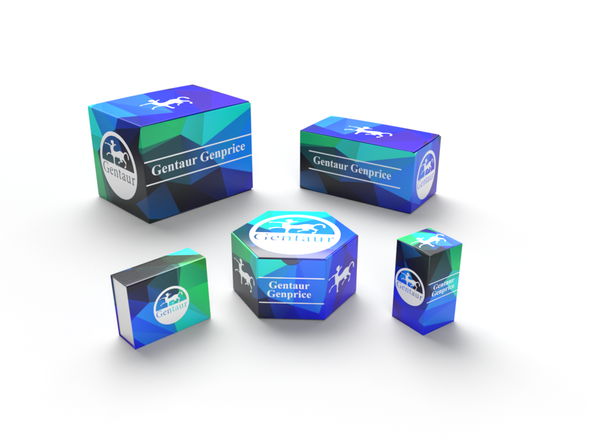740
Rat Replication protein A 70 kDa DNA-binding subunit (RPA1) ELISA Kit | AE62799RA
- SKU:
- 740-AE62799RA
- Availability:
- Usually ships in 5 working days
Description
Rat Replication protein A 70 kDa DNA-binding subunit (RPA1) ELISA Kit | AE62799RA | Gentaur UK, US & Europe Distribution
Species Reactivity: Rat (Rattus norvegicus)
Abbreviation: RPA1
Alternative Name: HSSB; MST075; REPA1; RF-A; RP-A; RPA70; MSTP075|replication protein A1
Application: ELISA
Range: 0.312-20 ng/mL
Sensitivity: 0.128 ng/mL
Intra-Assay: ≤5.9%
Inter-Assay: ≤7.5%
Recovery: 1, 08
Sample Type: Serum, Plasma, Other biological fluids
Detection Method: Sandwich
Analysis Method : Quantitive
Test Principale: This assay employs a two-site sandwich ELISA to quantitate RPA1 in samples. An antibody specific for RPA1 has been pre-coated onto a microplate. Standards and samples are pipetted into the wells and anyRPA1 present is bound by the immobilized antibody. After removing any unbound substances, a biotin-conjugated antibody specific for RPA1 is added to the wells. After washing, Streptavidin conjugated Horseradish Peroxidase (HRP) is added to the wells. Following a wash to remove any unbound avidin-enzyme reagent, a substrate solution is added to the wells and color develops in proportion to the amount of RPA1 bound in the initial step. The color development is stopped and the intensity of the color is measured.
Product Overview: Replication protein A (RPA) is a 3-subunit single-stranded DNA (ssDNA) -binding protein that has been isolated from human cells and found to be essential for in vitro replication of the papovavirus SV40. The human cDNA directed production in E. coli of a 70-kD protein that reacted with a monoclonal antibody directed against the 70-kD subunit of the human protein. The recombinant subunit, purified from bacteria, exhibited single-stranded DNA-binding activity comparable to that of the complete RPA complex. It could substitute for the complete complex in stimulating the activity of DNA polymerase alpha-primase, but could not substitute for the complete complex in SV40 DNA replication in vitro, suggesting an important functional role for the other subunits.
Stability: The stability of ELISA kit is determined by the loss rate of activity. The loss rate of this kit is less than 5% within the expiration date under appropriate storage condition. The loss rate was determined by accelerated thermal degradation test. Keep the kit at 37°C for 4 and 7 days, and compare O.D.values of the kit kept at 37°C with that of at recommended temperature. (referring from China Biological Products Standard, which was calculated by the Arrhenius equation. For ELISA kit, 4 days storage at 37°C can be considered as 6 months at 2 - 8°C, which means 7 days at 37°C equaling 12 months at 2 - 8°C) .






